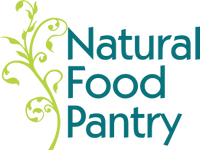Whether you're vegan, vegetarian, or an omnivore, getting enough protein in your diet is essential for overall health, muscle maintenance, immune function, and energy. Protein is made up of amino acids, some of which are essential, meaning your body cannot produce them and must get them from food sources. Whether you're looking to increase protein for fitness, weight management, or general health, it’s important to know your options.
In this blog, we’ll explore both vegan and animal-based protein sources that are dairy-free, with a focus on gluten-free options and the benefits of fermented and sprouted proteins. We’ll also provide a handy comparison chart to help you make informed choices.
Why is Protein Important?
Protein is a fundamental macronutrient, supporting a wide range of bodily functions, from building and repairing tissues to producing hormones and enzymes. It plays a key role in muscle recovery, immune health, and energy production. Protein is made up of amino acids, and there are 20 amino acids in total, 9 of which are essential for human health.
Best High-Protein Vegan & Animal-Based Foods (Dairy-Free & Gluten-Free)
1. Tempeh (Fermented Soy)
-
Why it's great: Tempeh is a fermented soy product that’s not only rich in protein but also contains beneficial probiotics, which support gut health. The fermentation process makes it easier to digest and helps increase the bioavailability of nutrients.
-
Protein per 100g: 19g
-
Nutrients: Probiotics, iron, calcium, fiber
2. Chicken Breast (Skinless, Boneless)
-
Why it's great: Chicken breast is one of the leanest animal protein sources, providing a high amount of protein with very little fat. It's a versatile and filling option for a protein-packed meal. Chicken is also rich in B-vitamins, especially niacin, which helps with energy production.
-
Protein per 100g: 31g
-
Nutrients: B6, B12, choline, phosphorus
3. Lentils (Cooked)
-
Why they're great: Lentils are a gluten-free, plant-based source of protein that is also high in fiber and minerals like iron and folate. They can be added to soups, stews, or salads, and work well as a base for veggie burgers or lentil loaf.
-
Protein per 100g: 9g
-
Nutrients: Fiber, iron, folate, manganese
4. Salmon (Wild-Caught)
-
Why it's great: Salmon is a rich source of protein and healthy omega-3 fatty acids, which support heart and brain health. Wild-caught salmon is particularly nutritious, as it contains fewer toxins compared to farmed salmon.
-
Protein per 100g: 20g
-
Nutrients: Omega-3 fatty acids, B vitamins, vitamin D, vitamin E
5. Chickpeas (Cooked)
-
Why they're great: Chickpeas and other legumes are another great plant-based protein source that is naturally gluten-free. They're high in fiber, manganese, iron, and folate, making them an excellent choice for digestive and overall health. Chickpeas can be used in salads, curries, or as a base for hummus.
-
Protein per 100g: 8.9g
-
Nutrients: Fiber, iron, manganese, folate
6. Grass-Fed Beef
-
Why it's great: Grass-fed beef is packed with high-quality protein and provides essential nutrients like iron, zinc, and B-vitamins. When grass fed, it also contains healthy fats which contribute to heart health.
-
Protein per 100g: 26g
-
Nutrients: Iron, zinc, B-vitamins (especially B12)
7. Tofu (Fermented Soy)
-
Why it's great: Tofu is made from soybeans and is a complete protein, meaning it contains all nine essential amino acids. Fermented tofu is easier to digest and may offer additional benefits, such as improved gut health thanks to its probiotics.
-
Protein per 100g: 8g
-
Nutrients: Calcium, iron, magnesium, probiotics (when fermented)
8. Turkey Breast (Skinless)
-
Why it's great: Turkey breast is another lean animal protein source, offering a high protein-to-fat ratio. It’s an excellent source of niacin (vitamin B3) and selenium, which are important for energy production and immune function.
-
Protein per 100g: 29g
-
Nutrients: Tryptophan, niacin, selenium, phosphorus
9. Quinoa (Cooked)
-
Why it's great: Quinoa is a gluten-free, whole grain/seed that provides all nine essential amino acids, making it a complete plant-based protein. It's rich in fiber, antioxidants, and minerals like magnesium and iron. Quinoa is versatile and can be used in everything from grain bowls to salads.
-
Protein per 100g: 4.1g
-
Nutrients: Fiber, magnesium, antioxidants, iron, calcium
10. Hemp Seeds
-
Why they're great: Hemp seeds are a complete protein, containing all nine essential amino acids. They’re also rich in healthy omega-3 fatty acids, magnesium, and fiber. Hemp seeds are easy to digest and can be added to smoothies, salads, or sprinkled over yogurt or oatmeal.
-
Protein per 100g: 32g
-
Nutrients: Omega-3 fatty acids, magnesium, fiber, iron
11. Eggs (Organic, Free-Range)
-
Why they're great: Eggs are an excellent source of protein, providing all nine essential amino acids. They also contain a variety of important nutrients, including vitamin B12, choline, and selenium. Opting for organic, free-range eggs can ensure higher quality and better nutrient profiles.
-
Protein per 100g: 13g (2 eggs)
-
Nutrients: Vitamin B12, choline, selenium, riboflavin
Protein Comparison Chart: Vegan & Animal-Based Protein Foods
Here’s a comparison of both vegan and animal-based protein sources (all dairy-free), highlighting their protein content and other key nutrients:
| Food |
Protein per 100g |
Other Key Nutrients |
| Tempeh (fermented) |
19g |
Probiotics, iron, calcium, fiber |
| Chicken Breast |
31g |
B-vitamins, phosphorus, selenium |
| Lentils (cooked) |
9g |
Fiber, iron, folate, manganese |
| Salmon (wild-caught) |
20g |
Omega-3 fatty acids, vitamin D, selenium |
| Chickpeas (cooked) |
8.9g |
Fiber, iron, manganese, folate |
| Grass-Fed Beef |
26g |
Iron, zinc, B-vitamins (especially B12), omega-3s |
| Tofu (fermented) |
8g |
Calcium, iron, magnesium, probiotics |
| Turkey Breast |
29g |
Niacin, selenium, phosphorus |
| Quinoa (cooked) |
4.1g |
Fiber, magnesium, antioxidants, iron |
| Hemp Seeds |
32g |
Omega-3 fatty acids, magnesium, fiber |
| Eggs (organic, free-range) |
13g |
Vitamin B12, choline, selenium, riboflavin |
| Almonds |
21g |
Vitamin E, magnesium, fiber, healthy fats |
| Walnuts |
15g |
Omega-3 fatty acids, antioxidants, fiber, magnesium |
| Pumpkin Seeds |
19g |
Magnesium, zinc, iron, antioxidants |
Tips for Maximizing Protein Intake
-
Combine Protein Sources: For complete amino acid profiles, combine proteins throughout the day. For example, pairing quinoa with chickpeas or tofu with hemp seeds ensures a balanced amino acid intake.
-
Opt for Fermented & Sprouted: When choosing vegan protein foods, aim for fermented and sprouted protein sources whenever possible. They improve digestion, increase bioavailability, and support gut health.
-
Snack on Protein-Rich Foods: Keep protein-rich snacks, such as toasted chickpeas or edamame, organic turkey jerky, nuts, or hummus with veggies, on hand to keep you fueled throughout the day.
-
Get Creative with Eggs: If you consume eggs, try them in different ways—scrambled with veggies, in an omelet, or hard-boiled as a quick snack.
With so many dairy-free protein sources to choose from, both vegan and animal-based, it’s easy to create a well-balanced diet that meets your protein needs. Whether you prefer plant-based options like tempeh, lentils, and quinoa, or animal-based sources like chicken, beef, and eggs, the key is to choose a variety of protein-rich foods for optimal health. Including fermented and sprouted options can help improve digestion and nutrient absorption, ensuring that you get the most from your meals.




